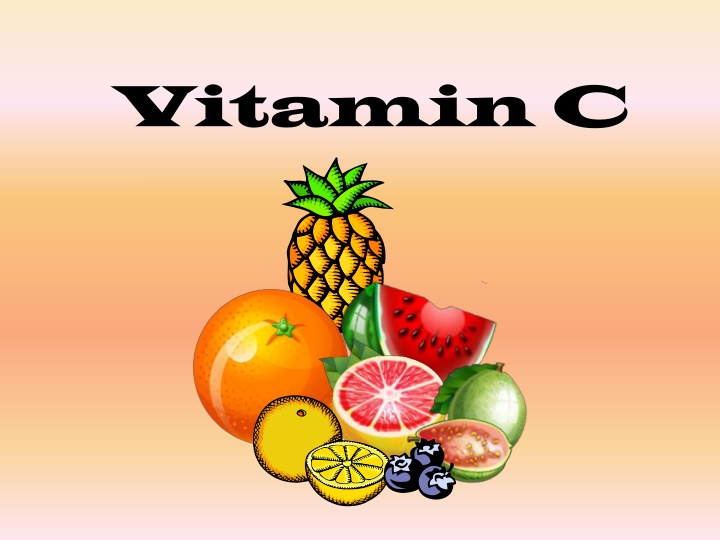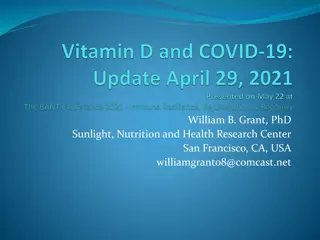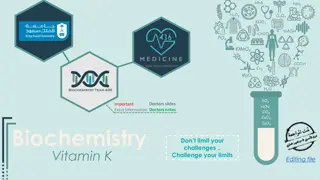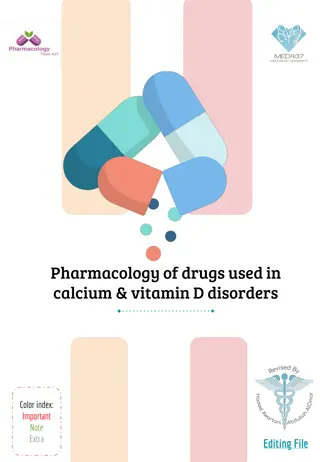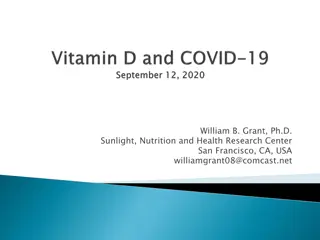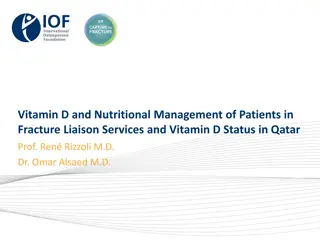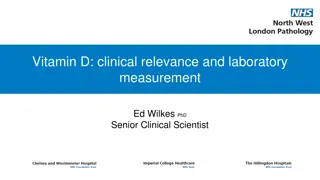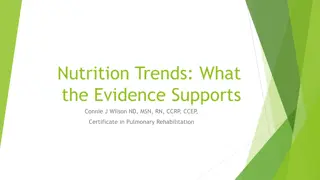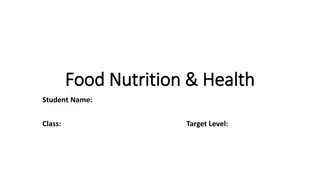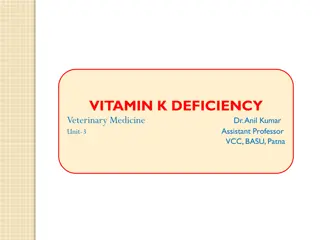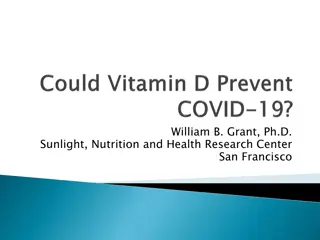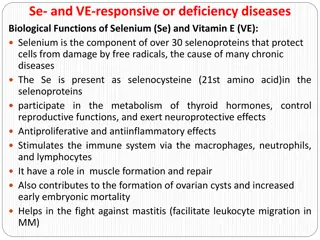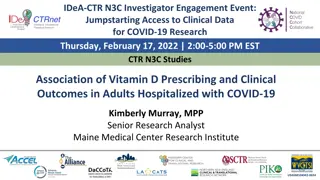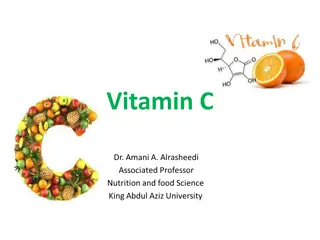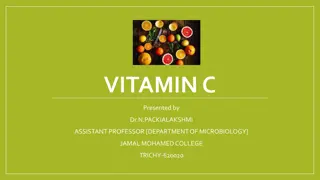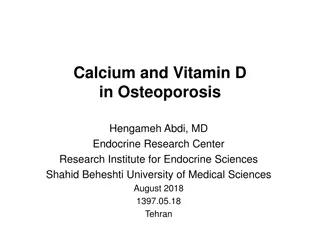All About Vitamin C: Sources, Benefits, and Recommendations
Vitamin C is a water-soluble vitamin commonly found in fruits and vegetables like kiwi, oranges, broccoli, and red peppers. It plays a crucial role in the body by aiding in growth, tissue repair, collagen formation, and boosting immunity. The recommended daily intake varies by age and gender. Signs of deficiency include bleeding gums, slow healing, and easy bruising. Learn more about Vitamin C and its importance in promoting healthier lives through education and research at the Pennington Center.
Download Presentation

Please find below an Image/Link to download the presentation.
The content on the website is provided AS IS for your information and personal use only. It may not be sold, licensed, or shared on other websites without obtaining consent from the author.If you encounter any issues during the download, it is possible that the publisher has removed the file from their server.
You are allowed to download the files provided on this website for personal or commercial use, subject to the condition that they are used lawfully. All files are the property of their respective owners.
The content on the website is provided AS IS for your information and personal use only. It may not be sold, licensed, or shared on other websites without obtaining consent from the author.
E N D
Presentation Transcript
What is Vitamin C? Vitamin C is a water soluble vitamin that is commonly found in fruits and vegetables.
Where Does It Come From? Kiwi Oranges Sweet potatoes Lemons Tomatoes Strawberries Turnip Greens Broccoli Red peppers Cantaloupe White potatoes Papaya Blueberries Mango and many others
Why Do We Need It? Vitamin C helps us: Grow Repair broken tissue when we get hurt Make collagen heal cuts and bones Boost immunity
What is Its Role in The Body? Antioxidant Decreasing the risk of certain conditions Strengthen the immune system
Recommendations for Dietary Intake Ages 4 to 8 : 15 mg/day Ages 9 to 13: 25 mg/day Females 14 to 18: 65 mg/day Males 14 to 18: 75 mg/day Females 19 < : 75 mg/day Males 19 < : 90 mg/day Source: American Dietetic Assoc.
How Do I Know If I Might Not Be Getting Enough? Some signs of deficiency: Bleeding gums Rough and dry skin Slow healing when hurt Easy bruising Nosebleeds Weight gain Increased chance of infection
Mission: To promote healthier lives through research and education in nutrition and preventive medicine. The Pennington Center has several research areas, including: Clinical Obesity Research Experimental Obesity Functional Foods Health and Performance Enhancement Nutrition and Chronic Diseases Nutrition and the Brain Dementia, Alzheimer s and healthy aging Diet, exercise, weight loss and weight loss maintenance Authors: Heli Roy, PhD, RD Beth Kalicki Division of Education Pennington Biomedical Research Center The research fostered in these areas can have a profound impact on healthy living and on the prevention of common chronic diseases, such as heart disease, cancer, diabetes, hypertension and osteoporosis. The Division of Education provides education and information to the scientific community and the public about research findings, training programs and research areas, and coordinates educational events for the public on various health issues. We invite people of all ages and backgrounds to participate in the exciting research studies being conducted at the PenningtonCenter in Baton Rouge, Louisiana. If you would like to , visit the clinical trials web page at www.pbrc.edu or call (225) 763- 3000.
